The best varieties of cucumbers for pickling for the winter
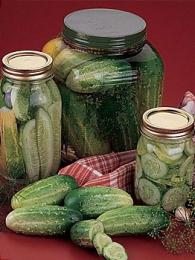
Long before the start of the gardening season, we are all looking forward to the new harvest. Most summer residents, even before planting, think about what they will prepare for the winter. But no matter what preparations we make, few housewives refuse salted or pickled cucumbers.
Content:
- How to choose the best varieties of cucumbers for pickling?
- External differences between pickling cucumbers
- The best varieties of cucumbers for pickling
- Classic varieties of cucumbers for pickling
- Modern varieties of cucumbers for pickling
But in order for this endeavor to be crowned with success, it is not enough to comply with everything canning rules and follow the recipe exactly. For the most part, the quality depends on the correctly selected variety of cucumbers for pickling. Agree, it’s a shame when efforts have been wasted and the time has come to enjoy the work done, but everything turns out to be indecently “the other way around.” Instead of the expected tasty, crispy and spicy cucumbers, you got the exact opposite result. How to choose the right varieties of cucumbers for pickling?
How to choose the best varieties of cucumbers for pickling?
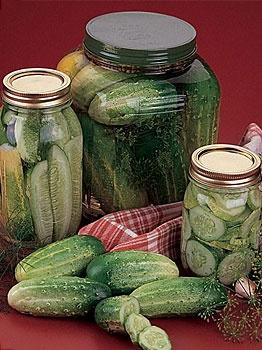
Conventionally, all varieties of cucumbers are divided into salad, pickling and universal. It’s good if they shared with you the seed material that is guaranteed to produce a harvest of cucumbers for pickling. If you have to choose, be careful when choosing seeds.
External differences between pickling cucumbers
It is easy to distinguish pickling varieties of cucumbers from salad ones even by appearance; pickling varieties are the most lumpy.You also need to pay attention to the thorns - the white-thorned ones do not turn yellow on the bushes for a long time, their skin is thick and is not permeable to brine. That is, these varieties of cucumbers are not suitable for pickles, but those with black thorns are just the thing!
The spines formed on the fruits regulate the evaporation of moisture in the plant. The spines darken due to pigment, which, when accumulated, turns black and stops evaporation, subsequently making the spine brittle.
The quality of a cucumber also depends on the density of the fruit pulp; pickling cucumbers have much denser pulp. In large-tubercular varieties intended for pickling, transverse vascular bundles leading to the surface are very developed, which makes the cucumber pulp crispy.
Choosing cucumber seeds for planting, you should not focus only on the beautiful picture of the package. Read the description, it contains a lot of useful information, and most importantly, it indicates the purpose of cucumbers.
The best varieties of cucumbers for pickling
The best varieties of cucumbers for pickling are those with short, tuberous fruits with black spines. The most productive varieties of cucumbers, known for many years, include “Nezhinsky” and “Muromsky”. Cucumbers of these varieties are ideal for canning - the medium-sized fruits have dense and elastic flesh and a thin peel.
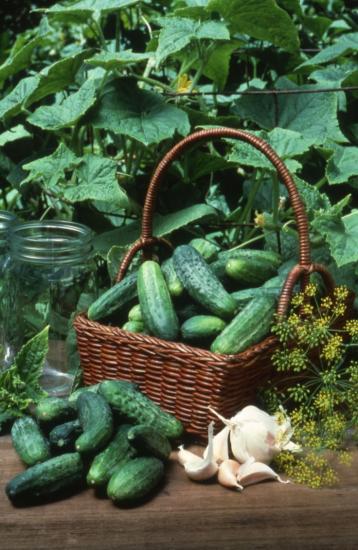
The following varieties of pickling cucumbers belonging to the Nezhin dynasty have also proven themselves well:
- "Era"
- "Nosovsky"
- "Nezhinka"
- "Stage"
All of them have excellent pickling properties, the cucumbers turn out tasty and crispy. Unlike hybrids, they all produce good seed material.
Classic varieties of cucumbers for pickling
- "Altai"
- "Coastal"
- "Voronezh"
- "Magnificent F"
- "Vyaznikovsky"
Their only drawback is that the fruits quickly turn yellow.But timely harvesting will save the gardener from these problems. In addition, it is no secret to anyone that by harvesting cucumbers every day, we stimulate the formation of new ovaries and the active growth of the bush.
Modern varieties of cucumbers for pickling
To say that there are many cucumber seeds today is an understatement. Even experienced gardeners are blindsided by the abundance that is offered to us. What can we say about those for whom growing vegetables is new. Gardeners' fears about hybrid varieties are completely wrong. Almost all modern varieties and hybrids have increased resistance to disease, tolerate insufficient watering and have high taste.
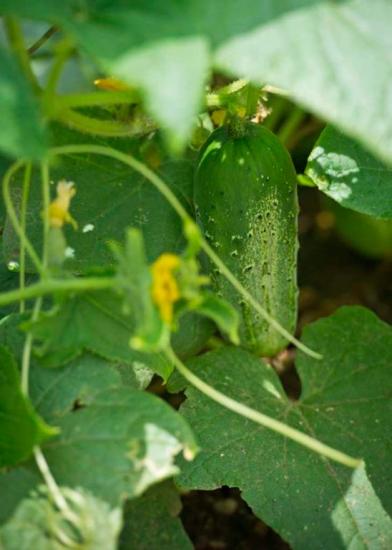
Modern varieties of cucumbers for pickling:
- "Khabar"
- "Pickling F1"
- "Nightingale F1"
- "Semcross F1"
- "Gypsy F1"
- "Barrel pickling F1"
- "Mama's Favorite F1"
- "Liliput F1", "Herman"
- "Funny boys"
- "Parisian gherkin"
- "Courage F1" and others.
All of them have high salting properties.
If you prefer tiny crispy cucumbers. Then the best choice would be the seeds “Liliput” and “Parisian gherkin”. Using them, you can easily achieve excellent results. They have very high yields, excellent taste and high pickling properties. Salting of the “Barrel Pickling F1” variety does not require the use of preservatives. Using even the largest and substandard fruits, you are sure to get an excellent result.
It is difficult to talk about all varieties in this short review; there are many more of them. They all have their pros and cons, differ in ripening time and other features. We hope this material will be useful to you.And we, in turn, wish you great harvests!

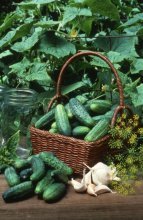
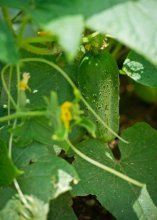
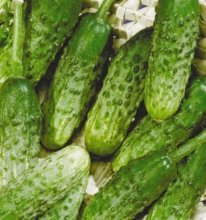
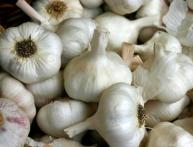
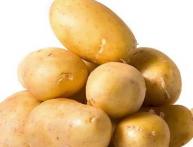
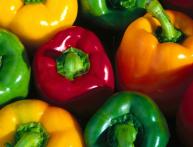
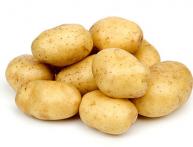
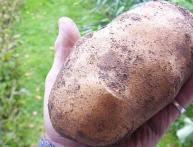
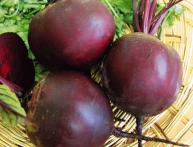
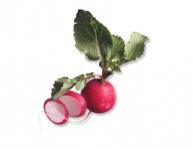

Comments
For winter pickling, I prefer to leave the smallest variety of cucumbers. Every year I plant different varieties, so I don’t remember the names. And they are small because there will be more of them in the jar.
Since childhood, I have loved pickles, and every time my mother took out another jar from the cellar, I first of all caught and ate all the small cucumbers! I myself have been growing “Parisian gherkin” for pickling for several years! The most delicious cucumbers, they always turn out crispy when pickled, and are unpretentious during the growth process!
If we are talking specifically about salting - in the traditional old way, then here, of course, the choice of variety is of enormous importance. But who salts like that today? Everything is canned, basically. Therefore, any dense and medium-sized cucumbers, if you do everything correctly, will be crispy. But personally, I always salt small gherkin-type cucumbers with pimples.
I had a sad experience with pickling salad cucumbers.
About 15 years ago, we bought cucumbers and immediately started pickling them.
Imagine our indignation when in the morning all the banks were opened. Great experience. Since then, we have been carefully selecting cucumbers for pickling.
But with spikes - good advice, I'll take note.